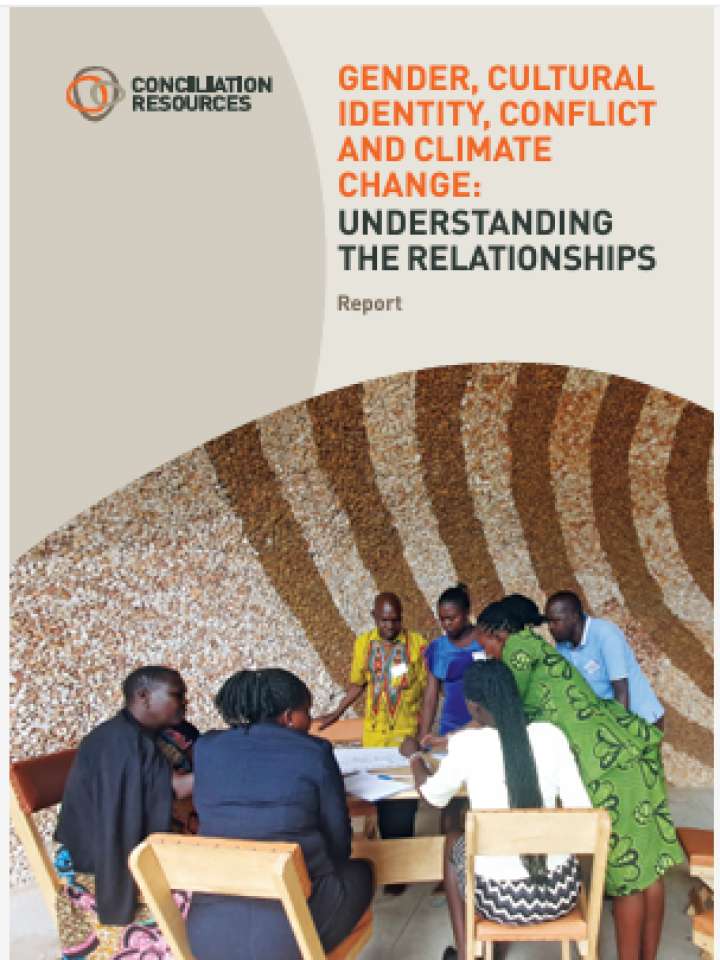Gender, cultural identity, conflict and climate change
This report presents the learnings from a series of participatory workshops conducted to explore how gender and cultural norms, relationships and power structures shape how different people experience climate change, the types of responses they adopt and how this interacts with conflict systems.
This report provides recommendations for practitioners and policymakers working on peacebuilding and climate change initiatives in conflict contexts. It offers lessons on how actors in each field can integrate gender and culturally-responsive actions into their work, building on the findings presented:
- Address underlying inequalities and fragility to strengthen climate resilience and unlock effective, sustainable climate action.
- Leverage climate change initiatives as entry points for peacebuilding and gender and social equality outcomes, with a strong focus on masculinities.
- Integrate an intersectional gendered analysis into peacebuilding and climate change programming, policy development and advocacy.
- Advance gender and culturally responsive climate change action at governmental levels.
- Invest in programming that prevents climate and gender-related conflict and is led by local women and civil society organisations.
Explore further
